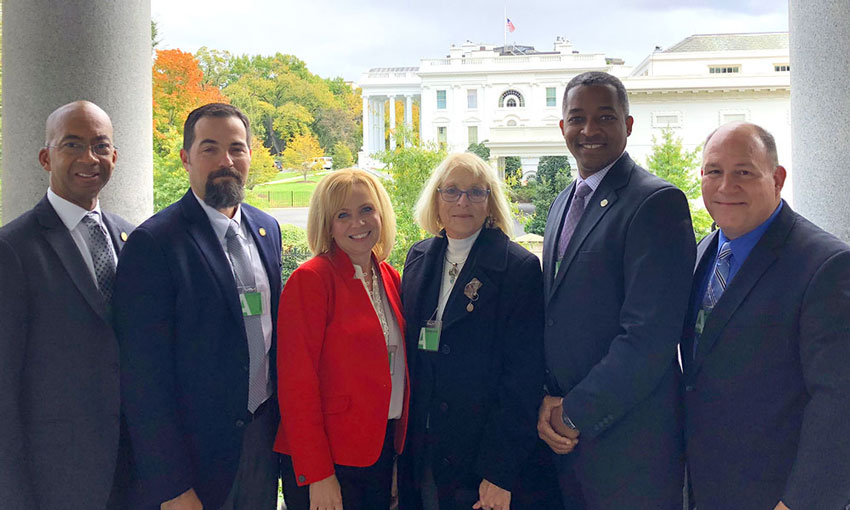VCU School of Education
The VCU School of Education recently facilitated an informal discussion with Jeff Weld, Ph.D., senior policy advisor and assistant director of STEM Education in the Executive Office of the President of the United States. The meeting yielded valuable insights that can be applied to Weld’s new Federal STEM Education Plan, as well as ideas for a Virginia leadership group that is informing state-based STEM plans for the commonwealth.
Led by Al Byers, Ph.D., VCU’s visiting scholar in STEM Education, attendees included colleagues from VCU, Virginia Tech, the Virginia Community College System and the Virginia Department of Education.
Weld is leading the December release of a five-year Federal STEM Education Plan that will provide the strategy for implementing STEM education across the U.S. The plan will be a culmination of insights gained from federal agencies, educators and industry representatives, among other stakeholders and policymakers, and will serve as a guidepost for future state and locally based STEM college- and career-based initiatives.
STEM education for K-12 and post-secondary opportunities (college and career) has significant implications, down to even the upper elementary grades. Research shows that during these formative years, students develop a STEM “identity” and acquire a passion to pursue more arduous STEM pursuits later on. These same students will be asked to make STEM-informed decisions in the future on issues as varied as clean water, halting the spread of infectious diseases, and the vulnerability of the internet.
As the School of Education and Virginia partners begin crafting state-based STEM education plans, the insights gained from this meeting are expected to be useful in charting an efficient, effective road map and timeline for students.
